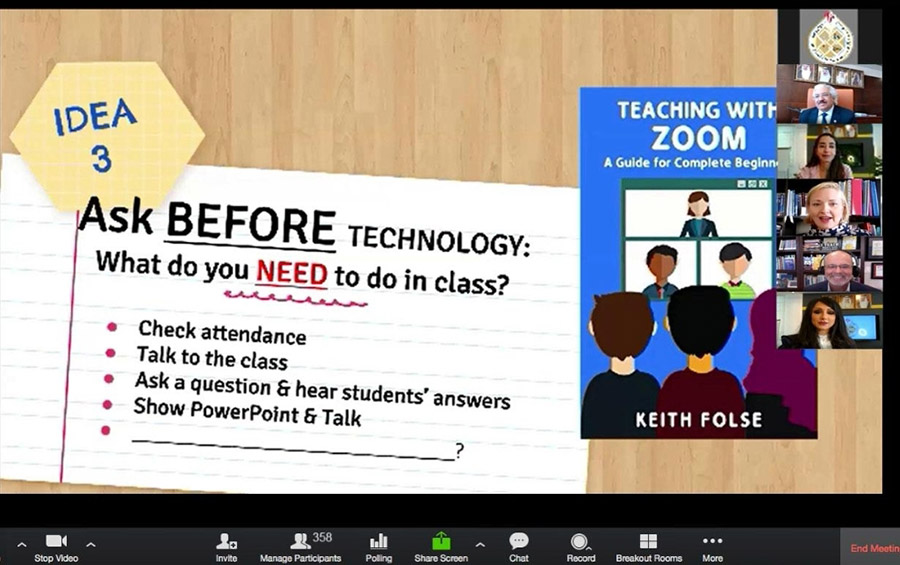During a webinar organized by the University of Bahrain,
Middle Eastern Academics established a network to discuss English Language eLearning methods.
English Language Academics and experts from the Kingdom of Bahrain and a number of countries in the Middle East have agreed to create a network for all higher education stakeholders involved in teaching English Language. Together, they will discuss recent developments in curriculum design in relation to new teaching methods in eLearning.
This agreement is one of the outcomes of a webinar organized by the University of Bahrain in which researchers from various countries participated. The webinar discussed ways in which English language teachers in higher education institutions could deal with the implications resulting from the COVID-19 crisis.
The webinar, attended by 600 higher education faculty members, was entitled COVID-19 Crisis Impact: A Shift from Challenges to Opportunities in English Language Learning.
Dr. Ghada Ahmed Jassim, Director of the English Language Center at the University of Bahrain, stated that, ‘The outbreak of the Coronavirus pandemic in the middle of the past semester had drastically disrupted academic practices and the flow of learning in the majority of higher education courses. Lecturers and instructors had to change course outlines and infrastructure, as well as their own teaching strategies during the crisis. Among other courses, the crisis had a unique impact on English language teaching’.
Dr Jassim continued by stating that during the crisis ‘English language teachers took it upon themselves to come up with innovative teaching methods to meet learners’ needs, and to motivate students to be engaged in the learning process’. She also pointed out that the webinar, organized by UoB English Language Center, ‘aimed to shed light on how English language teachers in higher education institutions were dealing with the repercussions of the COVID-19 crisis so that flexibility and adaptability to the current situation are maintained’.
The webinar targeted lecturers, teachers, and other stakeholders in higher education, both in the Kingdom of Bahrain and the Middle East. Discussions were held on how to transform bricks-and-mortar classrooms into an exciting and worthwhile interactive educational experience for students in spite of the challenges. Participants also exchanged best practices and experiences during the webinar.
In addition, the webinar explored a number of research papers presented by speakers from the Middle East, the UK, Malaysia, the US, as well as faculty members from the University of Bahrain.
The discussions shed light on the importance of a number of aspects, including 21st century skills in virtual classrooms, creativity and innovation in the assessment of English language skills, and sustainable education during times of crisis.
Participants also explored challenges faced by faculty members. Discussions focused on best practices and innovations that emerged as a result of this crisis, all contributing to the sustainability and quality of education during the crisis. These discussions emphasized the importance of innovation when introducing new methods of teaching, and assessment of English language skills, in line with the requirements of virtual learning and the development of digital learning management systems.








